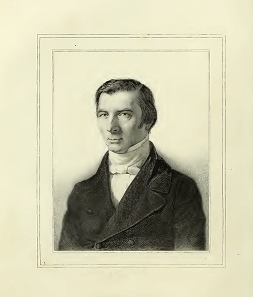Liberty Matters
The Relational Conception of Value: A Bastiatesque Story

In this conversation Don has provided a great service in demonstrating the importance of Bastiat's technique of story-telling as a useful, if not indispensable, method of applying economic theory to elucidate economic reality. In doing this, Don has also implicitly shown that this rhetorical device is useful in refuting erroneous theories, e.g., of how tariffs or other interventionist policies allegedly improve economic efficiency and welfare.
I propose to tell a story here to challenge Guido's contention that Bastiat's and Mises's value theories are related by their shared "relational conception of value." I freely concede Guido's point that Bastiat's value theory conceives value as a relationship between two goods in exchange. However, I reject Guido's characterization of Mises's theory of value as a relation between goods springing from choice between one good or another. In fact, Mises's value theory is derived from action, the universal striving to use available means to achieve ends. Ends, or satisfactions, are ranked and valued, while means, however many or few, reflect these rankings and values. The diversity and multiplicity of ends, unlike value, are not qualities that are imputed to means (goods). The number and kind of goods available are data given by the concrete conditions of action. Indeed choice between ends does not even practically necessitate choice between goods.
Now here is the story which illustrates my point. Let us suppose an individual is a castaway on an island where there is one producible consumer good, say, coconuts. All are equally serviceable. Also suppose that for this person, work up until the point of physical exhaustion involves no disutility; that is, leisure is not a consumer's good. He works to physical exhaustion and is able to collect a stock of five coconuts by climbing tall trees. He then consumes them and collapses into sleep. Coconuts have a variety of alternative uses that yield direct satisfaction. The actor may consume their flesh and milk to provide sustenance, hurl them at birds in trees for entertainment, use sharp rocks (which are in superabundance) to inscribe an SOS message on them and float them out to sea or to carve them into figurines to indulge his artistic inclinations, and so on.
Since coconuts are scarce in relation to their desired uses, the castaway must rank these uses according to the importance of the satisfactions they yield. The value of each of the five coconuts thus depends upon their marginal utility, or the least important end—say using birds as target practice—served by a unit of the stock. So in this world action exists and therefore so do ends, means, value scales, and the law of marginal utility. Most important, goods are valued despite the fact that only a single consumer good exists, and thus the actor need not choose between goods. To be sure there is, and must be, choice among ends to be attained in this world, but I do not think that this constitutes or implies what Guido means by a "relational conception of value."
Copyright and Fair Use Statement
“Liberty Matters” is the copyright of Liberty Fund, Inc. This material is put on line to further the educational goals of Liberty Fund, Inc. These essays and responses may be quoted and otherwise used under “fair use” provisions for educational and academic purposes. To reprint these essays in course booklets requires the prior permission of Liberty Fund, Inc. Please contact oll@libertyfund.org if you have any questions.